Latest News
Pakistan’s ISI funded deadly attack on CIA camp in Afghanistan: US National Security Archive
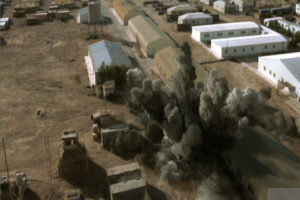
Talk about biting the hand that feeds. Even as it bilked billions of dollars in aid from the United States, Pakistan is now revealed to have funded the 2009 attack on a CIA camp on its border with Afghanistan that killed seven American agents and contractors and three others.
The explosive disclosure comes in a declassified 2010 cable published by the national security archive, that, despite being redacted in parts, asserts unequivocally that “some funding for Haqqani attacks are still provided by the Pakistan Inter-Services Intelligence directorate, including $200,000 for the December 30, 2009, attack on the CIA facility at Camp Chapman.”
The Camp Chapman attack was carried out by Khalil Abu-Mulal al-Balawi, a Jordanian doctor and double agent, whom the CIA was trying to use to infiltrate al-Qaida in Pakistan in its hunt for Osama bin Laden and Ayman al Zawahiri.
Instead, he was turned around the Haqqani group, a terrorist proxy for Pakistan’s intelligence agency.
Al-Balawi’s suicide attack on December 30, 2009 at the Camp Chapman forward post, which the CIA used to gather intelligence for drone attacks in Pakistan, killed ten people, including two female American CIA agents: Jennifer Lynne Matthews, 45, and a mother of three, who commanded the base, and Elizabeth Hanson, 30, a targeting analyst. The attack was memorialized in a movie titled Zero Dark Thirty.
While it has long been known that Pakistan’s terrorism sponsorship has claimed the lives of Indian and American civilians and military personnel, the revelations about bankrolling the Camp Chapman attack, kept secret from the public so far, is certain to inflame tensions between the two sides, particularly their military-intelligence outfits.
Successive US administrations — particularly the state department led by John Kerry — have long ladled out pabulum that Pakistan is a front-line ally in the war on terror while funneling billions of dollars of aid, despite multiple terrorist attacks across the world originating from Pakistan, including in San Bernardino, New York, and London.
The timing of the attack and the sequence of cables detailing the ISI’s role in organizing the attack suggests that the US administration lied to the American public about Pakistan being a frontline ally in the way on terror even as it funneled $ 7.5 billion in US taxpayer money to a country’s whose military-intelligence establishment was killing American soldiers and spooks.
Then senator John Kerry, who later became secretary of state, took the lead in presenting Pakistan as a worthy ally as he engineering with senator Lugar the Enhanced Partnership with Pakistan Act of 2009, which put $ 1.5 billion in US aid into the Pakistani coffers.
The Act, stemming from what is known as the Kerry-Lugar Bill was introduced to Congress on September 24, 2009, and passed into law on October 15, 2010.
The ISI-sponsored attack on Camp Chapman occurred on December 30, 2009. By February 6, 2010, the date on the explosive cable detailing the Pakistani role, Washington knew ISI had engineered the attack on the CIA forward post.
“During discussions at an unknown date between Haqqani, Salar, and an unidentified ISID officer or officers, Haqqani and Salar were provided $200,000 to enable the attack on Chapman,” the cable relates in an unredacted portion.
“Haqqani then provided the money to Salar who then communicated the planning details to Mullawi (Sakh). Sakh then contacted Arghawan Afghan border commander of the Khost Provincial Force.
The cable then goes on to say that Arghawan was promised $100,000 for facilitating the attack by the then unnamed Jordanian national (whose identity came to be known only later), but since Arghawan himself was killed in the attack, Salar kept the $100,000.
Which means, despite knowing Pakistan bankrolled the killing of its personnel, including two female agents who put their lives on line in a remote forward post, Washington still went ahead and rewarded Islamabad with billions of dollars in aid — and has continued to do so to this day with finance and armaments.
The Camp Chapman attack is counted as the second largest single-day loss in the CIA’s history, after the 1983 United States Embassy bombing in Beirut, Lebanon, which killed eight CIA officers.
While the cable relating to the Camp Chapman attack does not identify by name the ISI officer who supplied the $200,000, other cables in the collection shows, with names, how deeply the ISI is enmeshed in terrorism.
“As of late December 2009, at the end of every month, senior Haqqani network leadership met with ISID in Islamabad,” a January 2010 cable states.
Identifying Colonel Nasib and Major Daoud as the handlers. “An unknown amount of funding was provided to the Haqqanis for use in unspecified operations during these meetings,” it continues.
In a subsequent meeting, the cable says, the ISI directorate asked the Haqqanis “to expedite attack preparations and lethality in Afghanistan.”
The Times of India

Latest News
IEA rejects Russia’s claims of foreign militants in Afghanistan
He further called on Russian authorities to reassess their understanding of the situation in Afghanistan and to update their reports based on objective facts on the ground.
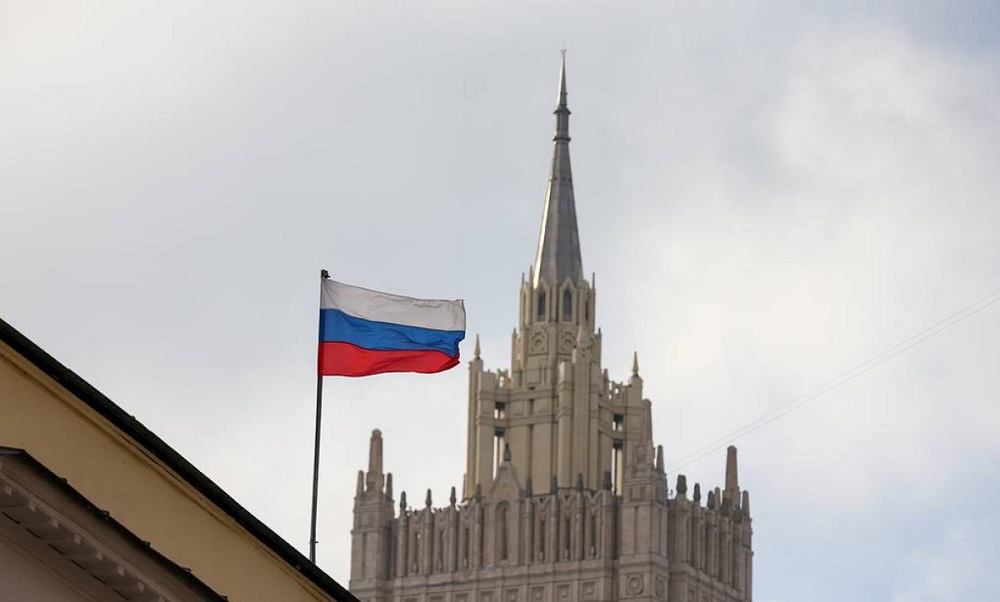
The Islamic Emirate of Afghanistan (IEA) has strongly rejected recent claims by Russia regarding the presence of international terrorist groups inside Afghanistan, calling the allegations unfounded and based on inaccurate information.
Speaking on the issue, Zabihullah Mujahid, the spokesperson of the Islamic Emirate, said Afghanistan is fully secure and no foreign armed groups are operating within the country.
He stressed that the entire territory of Afghanistan is under a single authority, leaving no space for external groups to carry out activities.
“We regret that such claims are made from sources in Russia,” Mujahid said, adding that these allegations date back to the past, including the period of the U.S. occupation, and have no basis in current realities. “We categorically reject these assertions.”
He further called on Russian authorities to reassess their understanding of the situation in Afghanistan and to update their reports based on objective facts on the ground.
Latest News
Escalating violence in Pashtun regions during Ramadan raises concerns
He described these incidents as grave violations of international law and acts that have deepened fears among affected communities.

Amid the holy month of Ramadan, violence has continued in several Pashtun areas, raising serious concerns among local communities.
In a post in X, Manzoor Ahmad Pashteen, the founder and head of Pashtun Tahafuz Movement, noted that in Tirah, four Pashtun civilians were reportedly killed and six others injured during operations carried out by the Pakistani army. Protests that followed in Orakzai were also met with force, leaving four more individuals seeking peace and justice injured.
In Afghanistan’s Behsud district, 17 civilians, including women and children, were reportedly killed in airstrikes attributed to Pakistani forces, he stated.
He described these incidents as grave violations of international law and acts that have deepened fears among affected communities.
In recent days, additional casualties have been reported in Rozmak, Shawal (North Waziristan), Mubarak Shahi village (Mir Ali), Speen Wam, Abakhel village, Dosali, Takhte Khel (Lakki Marwat), Azam Warsak (South Waziristan), Bajaur, and Bannu, where clashes between security forces and armed groups have resulted in deaths and injuries among civilians, Pashteen said.
He stated that the ongoing violence reflects longstanding grievances in Pashtun regions. The Pashtun Tahafuz Movement (PTM) has stated that it will continue to oppose what it describes as injustices against Pashtun communities and will stand in solidarity with those affected.
Latest News
UNAMA reports civilian casualties from Pakistani airstrikes in Afghanistan
UNAMA urged all parties to end hostilities, protect civilians, and uphold international law principles of distinction, proportionality, and precaution to prevent further civilian harm.
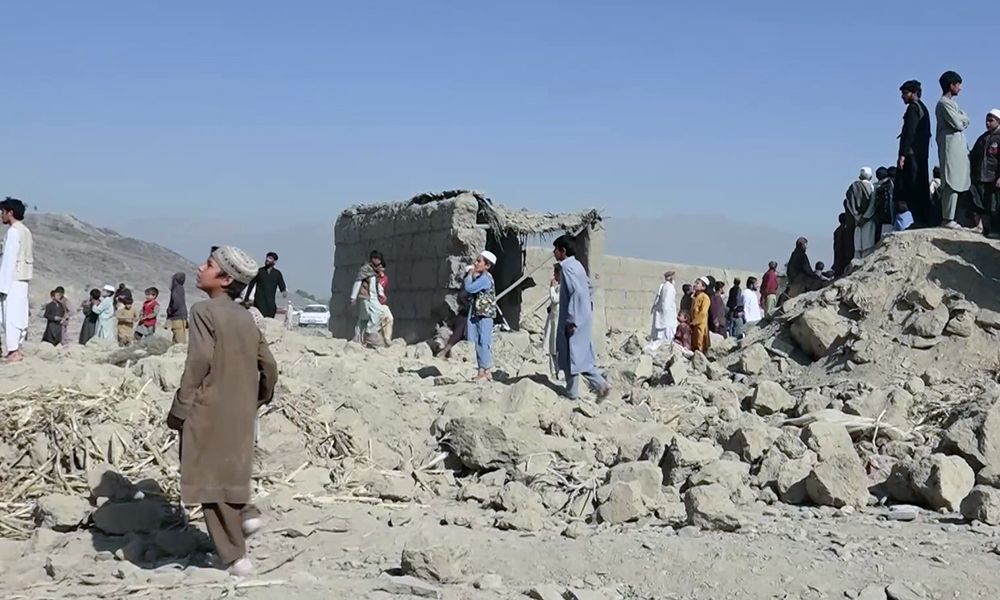
The United Nations Assistance Mission in Afghanistan (UNAMA) has confirmed credible reports of civilian casualties following overnight Pakistani airstrikes inside Afghanistan on 21–22 February.
Airstrikes in Behsud and Khogyani districts of Nangarhar province, carried out between approximately 23:45 on 21 February and 00:15 on 22 February, have reportedly killed at least 13 civilians and injured seven others, including women and children.
Pakistani forces also struck Barmal and Urgun districts in Paktika province.
In Barmal’s Marghai area, an airstrike on 21 February around 23:15 hit a madrassa and partially damaged a nearby mosque.
In Urgun’s Dahna area, an airstrike at approximately 23:30 partially destroyed a vacant private residence. No civilian casualties have been reported from these strikes.
UNAMA urged all parties to end hostilities, protect civilians, and uphold international law principles of distinction, proportionality, and precaution to prevent further civilian harm.
-
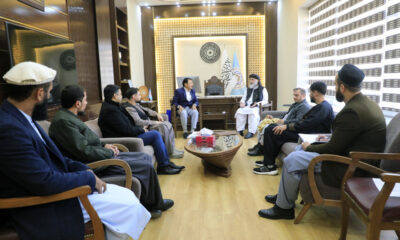
 Latest News4 days ago
Latest News4 days agoAfghanistan welcomes investment and technology partnerships with India
-

 Sport5 days ago
Sport5 days agoAfghan Peaks founder climbs Aconcagua to promote Afghanistan’s mountain potential
-

 Latest News4 days ago
Latest News4 days agoIndian customs seize Chinese walnuts falsely declared as Afghan
-

 Business4 days ago
Business4 days agoPakistan allows re-export of stranded Afghan transit cargo
-
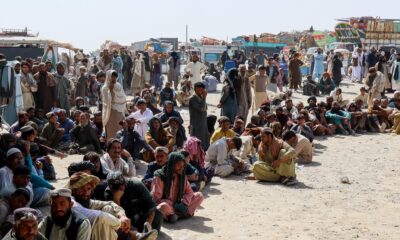
 Latest News4 days ago
Latest News4 days agoPakistan’s Punjab to send home 20 more Afghans in repatriation drive
-

 Latest News5 days ago
Latest News5 days agoPakistan signals possible air strikes as Kabul releases Pakistani soldiers in goodwill move
-

 Latest News3 days ago
Latest News3 days agoMoldova bans Afghan airlines over safety concerns
-

 Latest News2 days ago
Latest News2 days agoAfghanistan vows retaliation after Pakistan launches air strikes














